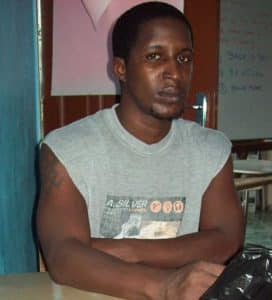In a landmark ruling that has sparked widespread debate and scrutiny, a former Lance Corporal of the Georgetown City Constabulary has been acquitted of charges stemming from the tragic death of Marlon Fredericks, a mentally ill vendor. Justice Priya Sewnarine-Beharry’s decision to uphold a no-case submission in the Demerara High Court marked the culmination of a legal saga that has gripped the nation since 2018.
The case, which centered on the alleged unlawful killing of Fredericks on January 14, 2018, at Regent Road, Bourda, Georgetown, reached a pivotal juncture as the defense successfully argued that the prosecution failed to establish a compelling case against the accused, Gregory Bascom, aged 53.
Bascom’s attorney, the esteemed Yuborn Allicock, mounted a vigorous defense, contending that the prosecution had not met the burden of proof required to convict his client of manslaughter. Central to Allicock’s argument was the assertion that the prosecution had failed to demonstrate that Bascom unlawfully discharged his service firearm, resulting in Fredericks’ tragic demise.
In her ruling, Justice Sewnarine-Beharry concurred with the defense’s position, directing the jury to return a formal verdict of not guilty in Bascom’s favor. The decision underscored the fundamental principle of due process and the necessity of establishing guilt beyond a reasonable doubt.
The circumstances surrounding Fredericks’ death, while tragic, were shrouded in ambiguity. Reports suggested that Fredericks, who was detained at the City Constabulary Outpost at Bourda on allegations of simple larceny and assault of a peace officer, was shot during a confrontation with Bascom.
Allicock emphasized critical deficiencies in the prosecution’s case, highlighting the absence of evidence regarding the circumstances leading to Fredericks’ detention and the protocols governing the use of firearms by City Constabulary officers. These glaring omissions, according to Allicock, rendered the prosecution’s case untenable and ultimately led to Bascom’s acquittal.
Following the ruling, Bascom, who had been on $800,000 bail pending the outcome of the trial, was freed from the specter of prosecution. While the legal battle may have concluded, the implications of this verdict reverberate far beyond the courtroom, raising profound questions about accountability, justice, and the treatment of individuals with mental illness within the criminal justice system.
As the nation grapples with the aftermath of this high-profile case, the quest for transparency and accountability remains paramount. Fredericks’ tragic death serves as a poignant reminder of the complexities and challenges inherent in the pursuit of justice, particularly in cases where vulnerable individuals are involved.
While the legal proceedings have come to a close, the broader conversation surrounding police conduct, mental health awareness, and the protection of human rights continues unabated. In honoring Fredericks’ memory, we must remain vigilant in our pursuit of a more just and equitable society for all.

